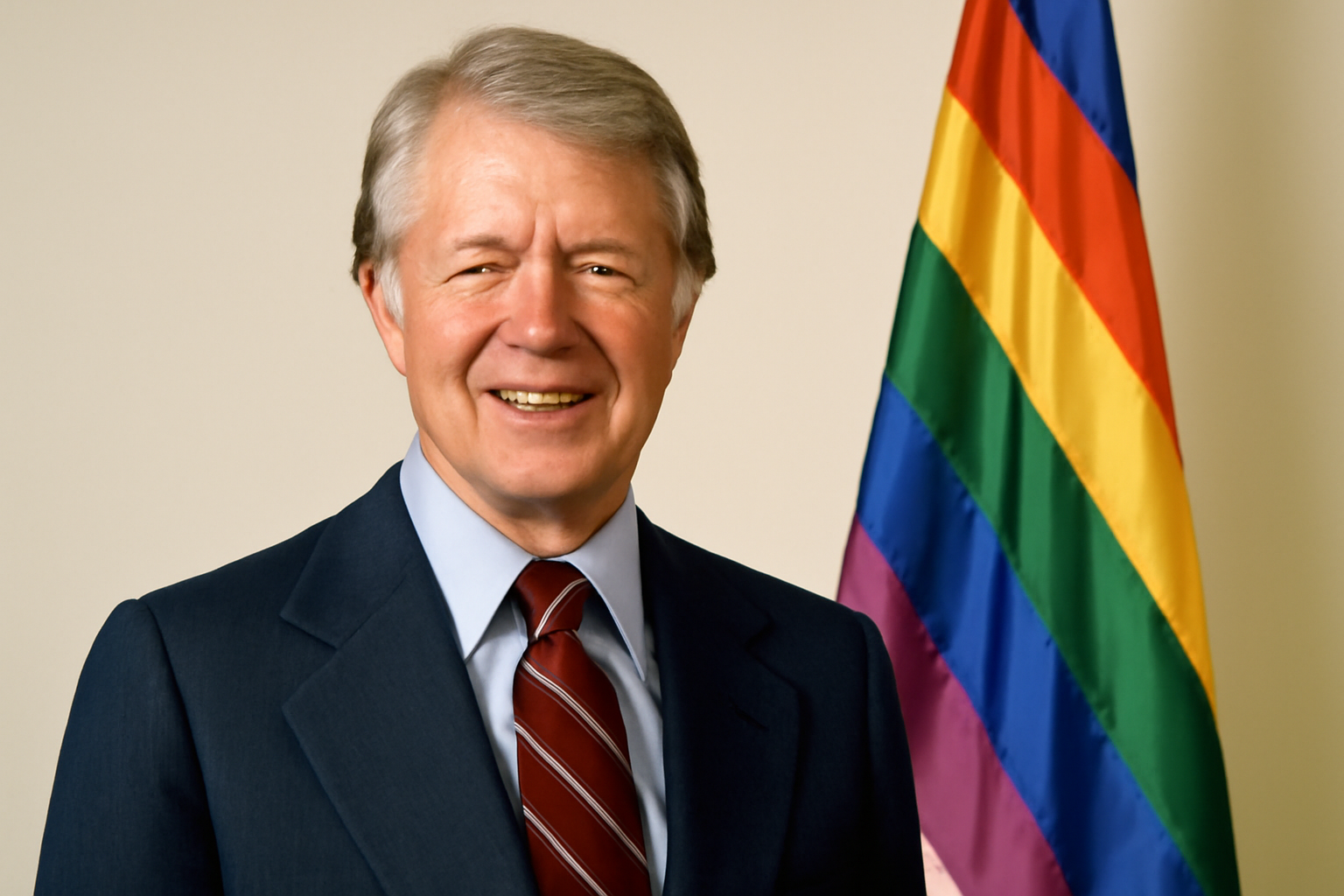
Jimmy Carter, the 39th President of the United States, is often celebrated for his numerous achievements such as advancing civil rights for African-Americans, securing a Nobel Peace Prize, and making significant strides in energy security and conservation. However, his contributions to LGBTQ rights during his presidency from 1977 to 1981 present a more complex narrative that reflects both the societal challenges of the era and his efforts to navigate them.
The Early Political Climate
During the 1972 Democratic National Convention, a proposal to prohibit discrimination based on sexual orientation was rejected by a significant margin. Despite this setback, the convention marked a milestone as Jim Foster and Madeline Davis became the first openly gay delegates to address a national political convention. Their speeches were scheduled at a challenging hour, yet they represented a pivotal moment in LGBTQ political history.
In the 1976 presidential campaign, Carter expressed support for the Equality Act, which aimed to amend the Civil Rights Act of 1964 to include sexual orientation as a protected category. This stance was considered courageous for the time and signaled a progressive approach to LGBTQ rights, despite the prevailing social attitudes.
Notable Appointments and Meetings
Carter appointed Midge Costanza, a notable figure in LGBTQ advocacy, as the head of his Office of Public Liaison. Although Costanza was a closeted lesbian, her position within the White House was significant. She was the only woman in a senior role on Carter's staff, highlighting Carter's commitment to diversity in leadership.
On March 26, 1977, Costanza facilitated the first meeting of gay representatives at the White House. This meeting included pioneers such as Frank Kameny and Rev. Troy Perry, among others. The event garnered significant media attention and sparked both support and backlash.
Despite the groundbreaking nature of this meeting, Costanza faced political challenges and her influence waned by 1978, leading to her resignation. Her departure underscored the difficulties of advancing LGBTQ rights within a political framework that was often resistant to change.
The Broader Social Context
In the late 1970s, the political landscape for LGBTQ rights was fraught with tension. Harvey Milk's election as a San Francisco Supervisor marked a significant achievement for openly gay individuals in public office. However, his assassination in 1978 underscored the pervasive hostility faced by the LGBTQ community.
Public opinion at the time was largely opposed to protections against discrimination based on sexual orientation. This reality posed a significant hurdle for Carter as he navigated his political platform and campaign for reelection in 1979.
Legacy and Reflection
By the 1980 Democratic National Convention, progress was evident in the increased representation of openly gay and lesbian delegates. Although Carter did not fully meet his campaign promises related to the Equality Act, his presidency laid groundwork that future leaders could build upon.
In 1992, the Democratic National Convention saw even more substantial inclusion, with openly gay delegates addressing the convention in prime time. This progression can be traced back to the early efforts and incremental changes during Carter's administration.
While Jimmy Carter's record on LGBTQ rights is mixed, it is essential to view his legacy within the context of the societal norms and political pressures of his time. Carter, recognized as a fundamentally decent and forward-thinking leader, contributed to broader civil rights dialogues that have continued to evolve.
Overall, Carter's presidency represents a period of tentative steps toward LGBTQ equality, reflecting both the challenges and possibilities of the era. His efforts, alongside the broader movements of the time, helped pave the way for more comprehensive rights and recognition for the LGBTQ community in subsequent decades.
Tags: Jimmy Carter, LGBTQ Rights, Political History, Civil Rights, 1970s America
Related Posts
"Wicked": Unveiling Fiyero's Destiny - Hidden Clues You May Have Overlooked
Have you ever been swept away by a story that leaves you unraveling clues long after it ends? That's exactly what "Wicked" does with its enchanting narrative, unforgettable songs, and complex characters. Among them, Fiyero stands out as a charming prince whose surprising metamorphosis by curtain fall makes us wonder: were there hints about his fate scattered throughout? Let's dig deep and see if " [...]
Triumphant Trans Woman Wins Legal Battle and Inspires Others to Stand Up for Their Rights
Breaking new ground: a landmark victory in transgender rights After battling in courtrooms and enduring endless challenges, Diana Portillo, a transgender woman, has secured a monumental victory in her decade-long fight against workplace discrimination. The result? Nearly $1 million awarded in a historic settlement. But this isn't just a win on paper—it represents a powerful precedent in combati [...]
Pride Month in Latin America: Protests and Demands for Equality
**Celebrating Pride and advocating LGBTQ+ rights in Latin America** Pride Month in Latin America was a lively mix where celebration met activism. Communities united, not just throwing a party but making a stand—demanding equality and pushing governments toward better protection and rights recognition. Throughout Latin America, pride events erupted in marches and cultural displays, each with a c [...]